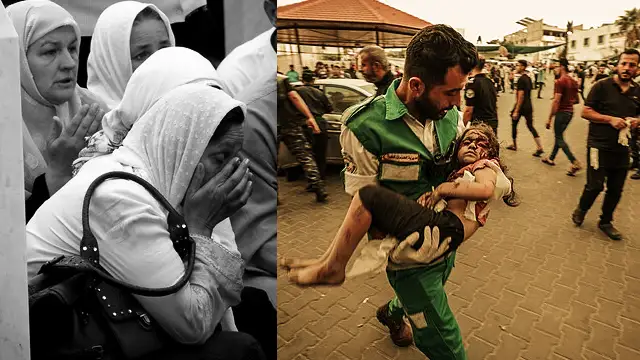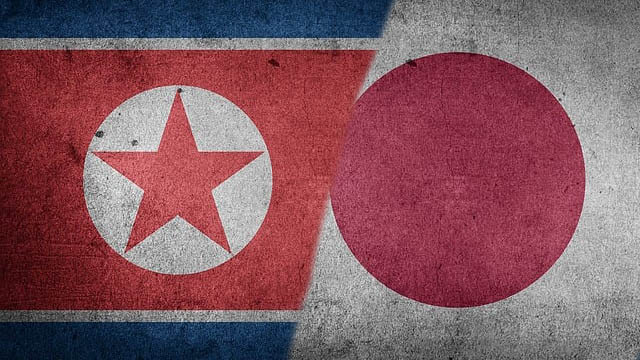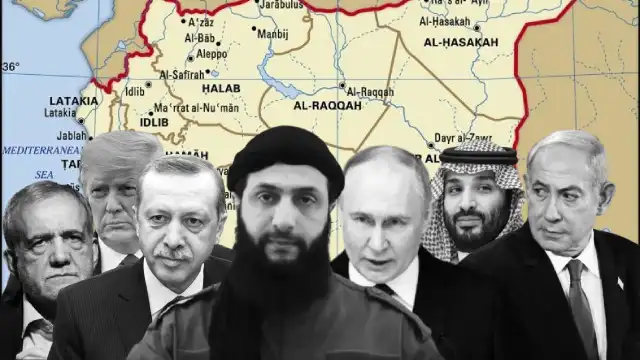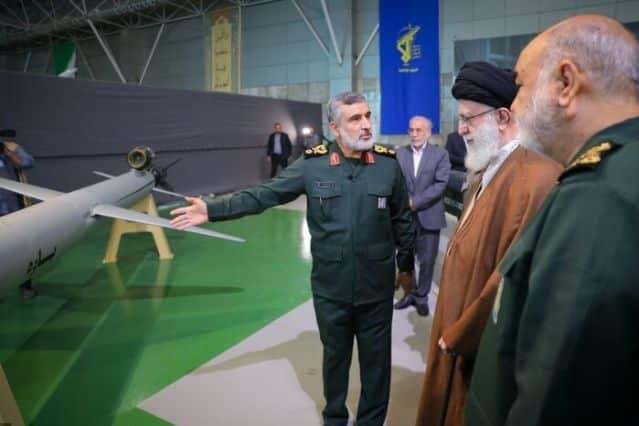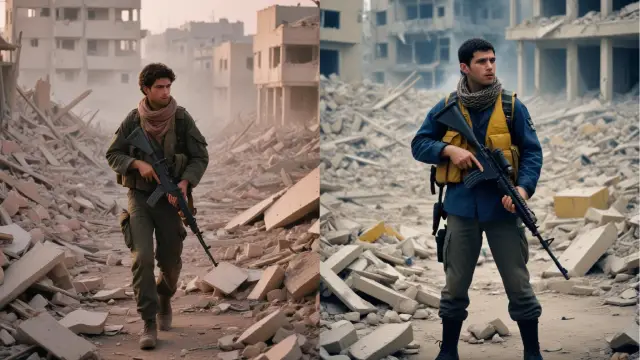July 11th marked the International Day of Reflection and Commemoration of the 1995 Genocide in Srebrenica, in which more than 8,000 Muslims were systematically killed by the Bosnian Serbs Force. The day is remembered to commemorate the deaths of the victims of the genocide and acts as a reminder of the failure of the world and the United Nations (UN) in the face of brutality, hatred and misuse of power over the weak.
Almost three decades on, Gaza has been a victim of collective hatred and discrimination. Like Srebrenica, the 2,000 metre-apart Gaza has been another perfect example of the defeat of the world including the UN. With 38,000 Palestinian civilians being erased from the face of the earth by the Israeli Defense Force (IDF) since October 2023, the “never again” slogan of the UN has been reduced to mere words.
Remembering the Srebrenica genocide
After a siege of four years, the Bosnian Serb Forces systematically killed and buried in mass graves 8,000 Muslim people, mostly men and boys, based on their identity in July 1995.
Muslims from the war-torn former Yugoslavian region evacuated through the woods to the UN-designated safe zone in a small Bosnian town called Srebrenica, where the Dutch peacekeepers, too reluctant to heed their support request, surrendered to the Bosnian Serb Forces and handed 300 Muslim men to be subsequently killed by the forces. Following the massacre, the Bosnian Serb Forces destroyed the villages, displaced over 22,000 people, assaulted, raped and executed civilians, making it the deadliest European genocide after the Second World War.
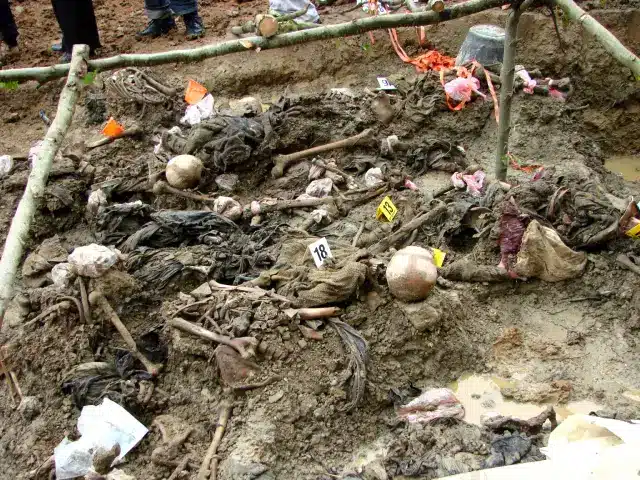
“We made serious errors of judgement, rooted in a philosophy of impartiality and non-violence which, however admirable, was unsuited to the conflict in Bosnia,” former UN secretary-general Kofi Annan had lamented while commemorating the victims on the tenth anniversary of the Srebrenica genocide.

The Serbs refuse to acknowledge the incident as a “genocide” and call it a grave crime. They also halve the number of victims and claim that most were killed during combats.
Bosnian Serb leader Radovan Karadzic and his military commander Ratko Mladić were convicted for their role in the Srebrenica genocide by a special UN war crimes tribunal in The Hague in 2017. Both are hailed by the Serbs.

Despite the widespread denial, the survivors still recall the horrors of the “black days” of genocide, which should never have taken place. But does such a horrific genocide merely exist in history or has it failed to awaken the world?
The world’s failure in the present day- The Gaza genocide
Francesca Albanese, a UN Rights expert highlighted that there are “reasonable grounds” to believe that Israel has carried genocide in Gaza. At the UN Human Rights Council (UNHRC), she said, “There are reasonable grounds to believe that the threshold indicating the commission of the crime of genocide…has been met.” She also added, “The genocide in Gaza is the most extreme stage of a long-standing settler-colonial process of erasure of the native Palestinians.”
Gaza Strip, one of the most densely populated regions in the world, has been under a ruthless offensive by the IDF, following a nearly two-decade-long siege, killing over 38,000 Palestinian civilians, injuring over 88,000 people and displacing two million people.
Since October 7th 2023, after the Israeli offensive started in Gaza, 8,270 Palestinians have been taken prisoner by Israel. Apart from the physical conditions of the released prisoners, their verbal testimonies highlight extreme physical and mental torture as well as psychological trauma.
“The prisoners are suffering badly, they are waiting for death every day,” says a freed prisoner, adding that the prisoners are starved, beaten, assaulted and killed.
One week after the Israeli aggression started, the UN experts warned of another “mass ethnic cleansing” of the Palestinian people in the name of self-defence. “There is a grave danger that what we are witnessing may be the repeat of the 1948 Nakba, and the 1967 Naksa, yet on a larger scale,” UN experts claimed. Ever since Israel was created in 1948, as many as 1.9m Palestinians have been ethnically cleansed.
The experts also urged the international community to “do everything to stop this from happening.”
However, has the international community been successful in putting an end to the reckless onslaught by Israel?
For nine months, the UN has failed to implement a permanent ceasefire in Gaza. After 247 days of the ongoing assault, the Security Council adopted a resolution with 14 votes in favour, proposing a three-phase ceasefire deal to put an end to the war in Gaza. It included “urging both Israel and Hamas to implement it fully and without delay and condition.”
Unlike the case of the Serbs, against whom the US-led collective West and their military bloc North Atlantic Treaty Organization launched a brutal war, Israel is an ally of the West.
Thus, there is a preferential treatment. While the UN’s court could show consensus and convict Mr Karadzic and Mr Mladic, the US and the West got infuriated when a prosecutor sought a mere warrant against Israeli Prime Minister Benjamin Netanyahu at the International Criminal Court (ICC). Cutting across party lines, American officials threatened the ICC with dire consequences for considering Mr Netanyahu as an accused.
Despite the adoption of UN resolutions, there is barely any way to enforce such goals. The UN has failed to distribute humanitarian aid across the besieged Gaza, which is now in the grip of famine with children dying of starvation. It has also failed to deploy UN forces to protect civilians, healthcare workers, as well as media persons. The UN body has even failed to bring accountability. Then what does the international community, even through the UN promise?
What does the UN’s failed promise of “never again” hint at?
“May the memory of Srebrenica strengthen our resolve to build a world free from the scourge of genocide, where ‘never again’ is a solemn promise fulfilled for all humanity,” the UN Secretary-General Antonio Guterres posted on his social media on Thursday.
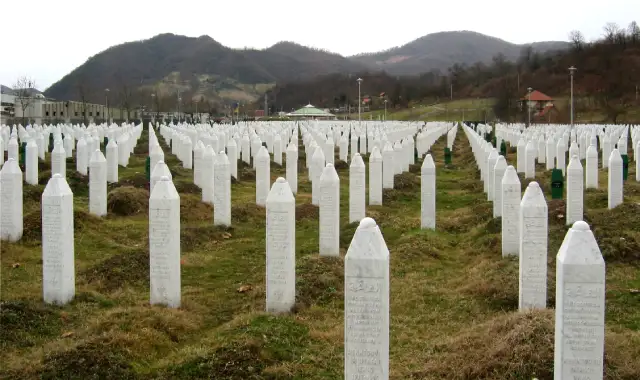
Yet, the people of Gaza have been the victims of the horrific bombardments and ground invasions of the IDF as the genocide has been ongoing for months. Moreover, they are the victims of the defeat of humanity just like the Muslims of Srebrenica in 1995, as the collective world leaders and international organisations have merely been condemning Mr Netanyahu for his “planned and calculated” attacks which have taken thousands of innocent lives in the most brutal ways possible.
“I condemn Israel’s actions which killed scores of innocent civilians who were only seeking shelter from this deadly conflict. This horror must stop,” wrote Mr Guterres on his X (formerly Twitter) handle in May.
French President Emmanuel Macron also posted on X, “Outraged by the Israeli strikes that have killed many displaced persons in Rafah,” calling for a ceasefire.
Josep Borrel, the Representative of the EU for Foreign Affairs and Security Policy, in his X handle, condemned Israel’s actions. “Horrified by news coming out of Rafah on Israeli strikes killing dozens of displaced persons, including small children. I condemn this in the strongest terms.”
The UNHRC adopted five resolutions, including a text that involved the removal of the blockade by Israel on the borders of Gaza, an immediate ceasefire and an end to all forms of collective punishment.
Beyond these words, and mere words, the world leaders who shed tears for the victims of the Srebrenica genocide, never bother to take any affirmative actions to stop the ongoing genocide in Gaza, which has nearly five times more victims than the Srebrenica genocide.
The weakness of the global leaders and intergovernmental bodies allowed the Srebrenica genocide. The question that arises today is whether the international organisations have any framework or enough authority to enforce UN resolutions and hold Israel accountable. Almost three decades on, does the world still lack the real power to implement “never again” for all?
A journalist interested in national and international news. She aspires to highlight the common people's concerns through human interest stories and deep-dive articles on geopolitics.

